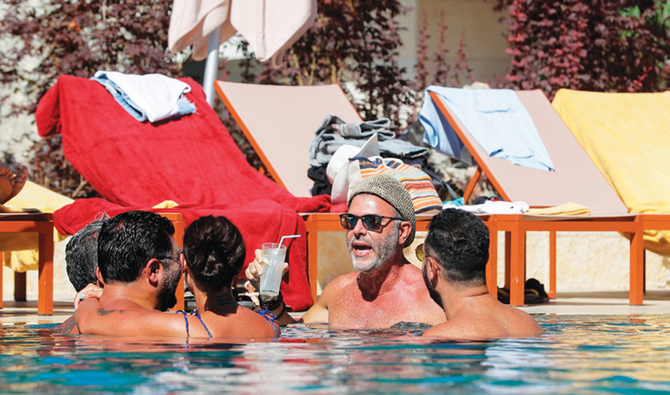
by AFP — FAQRA: Amid designer sunglasses, champagne buckets and luxury cars, Lebanon’s economic crisis is not immediately obvious in Faqra. Digging into a salad at an exclusive country club in the Lebanese mountains, Zeina El-Khalil was glad to be there for the summer. “The atmosphere in Beirut has become heavy and depressing. Reality is everywhere. But here we feel like we’re in another country,” she said. Lebanon is mired in its worst economic crisis in decades, with the downturn sparking soaring inflation and plunging almost half the country’s population into poverty. For the wealthy, trips abroad were off as banks blocked dollar withdrawals or transfers and the coronavirus disease (COVID-19) complicated international travel. But some of Lebanon’s wealthiest families have escaped to the Faqra Club, perched 1,600 meters (5,250 feet) above the Mediterranean. “Usually we spend our holidays abroad, but this year we can’t travel for financial reasons and COVID-19,” said El-Khalil.
Nestled in a mountain resort town famous for its ski slopes, the Faqra Club is an oasis of luxury in an otherwise collapsing country. Its motto, according to the official website, is “Life at the top.” Expensive cars pack the parking lot, while club members shuffle between its many facilities, including stables, a tennis court and a 9D movie theater. Around a long swimming pool, bronzed bodies sprawl on sofas and sun loungers, sipping cocktails, as music blasts in the background. “Life must go on,” said Sara, a 26-year-old lawyer. “We won’t stay trapped in the house.” Sealed off from the woes plaguing the rest of the country, the Faqra Club has become a magnet for those looking to do brisk business.
Many restaurants and stores have opened Faqra branches,in the hope of softening the blow of an economic crisis that has seen the value of the Lebanese pound plummet against the dollar. Along a bustling alley, around 40 kiosks dot the side of the street, displaying luxury swimsuits and silk abayas. Selim Heleiwa, owner of a high-end liquor store, said people could afford luxury. “The customers here suffer less from the crisis. They are often people who work, or have bank accounts, abroad,” he told AFP. Thousands of businesses across the country have closed, but for Heleiwa it is a “satisfactory” season, and he is not alone. The Auberge de Faqra, the main hotel at the Faqra Club, is fully booked every weekend, while landmark hotels across the country have shut because of bankruptcy.
At 795,000 Lebanese pounds per night, it equivalent to $530 at the official rate of 1,500 Lebanese pounds to the dollar. But at the black market exchange rate, the stay costs only around $100. For those who have access to the greenback, the price is a bargain, even though the club has almost doubled its rate since last summer. “Many of our customers have dollars. For them, the stay has actually become cheaper,” said one hotel employee. The prosperity on display in Faqra has not gone unnoticed. In July, a video showing a teenager flaunting a dollar banknote to a TV reporter caused a storm on social media against an out of touch elite. But for El-Khalil, the criticism was unfounded. “Getting the economy moving … is not a bad thing,” she said. “All the people here are trying to help the poor. If they are trying to live (at the same time) … that should not be seen in a negative light.”



